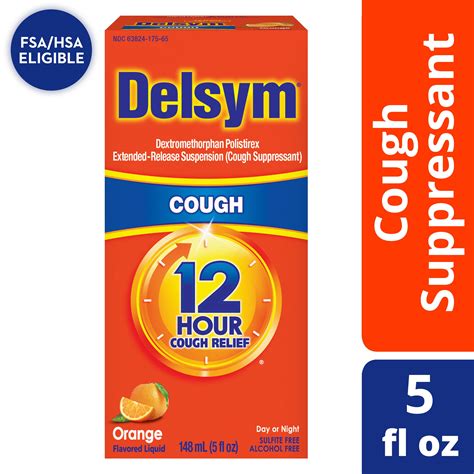Intro
Discover the best cough suppressant for bronchitis, relieving persistent coughs and soothing sore throats with effective over-the-counter medications and natural remedies, including expectorants and antitussives.
Bronchitis is a common respiratory condition characterized by inflammation of the bronchial tubes, which carry air to and from the lungs. The condition can be acute or chronic, and its symptoms include coughing, wheezing, shortness of breath, and chest discomfort. One of the most bothersome symptoms of bronchitis is the persistent cough, which can be dry and hacking or produce mucus. Finding the best cough suppressant for bronchitis can help alleviate this symptom and make managing the condition more bearable.
The importance of effectively managing bronchitis symptoms cannot be overstated. Untreated or poorly managed bronchitis can lead to complications such as pneumonia, chronic obstructive pulmonary disease (COPD), and respiratory failure. Furthermore, the persistent cough associated with bronchitis can disrupt daily activities, affect sleep quality, and impact overall quality of life. Therefore, it is crucial to identify the most effective cough suppressants that can provide relief without causing significant side effects.
Understanding the causes and mechanisms of bronchitis is essential for selecting the appropriate cough suppressant. Bronchitis can be caused by viral or bacterial infections, and in some cases, it may be triggered by environmental factors such as air pollution or smoking. The choice of cough suppressant depends on the type of bronchitis, its severity, and the individual's overall health status. For instance, a cough suppressant that works well for acute bronchitis might not be as effective for chronic bronchitis, and vice versa.
Types of Cough Suppressants for Bronchitis

There are several types of cough suppressants available for managing bronchitis, each with its own mechanism of action and potential side effects. These include over-the-counter (OTC) medications, prescription drugs, and natural remedies. OTC cough suppressants typically contain ingredients such as dextromethorphan, which acts on the brain to reduce the cough reflex. Prescription cough suppressants, on the other hand, may contain codeine or other narcotics, which can be effective but also carry a risk of dependence and other side effects.
Over-the-Counter (OTC) Cough Suppressants
OTC cough suppressants are widely available and can be purchased without a prescription. They are often combined with other ingredients such as expectorants, which help thin and loosen mucus, making it easier to cough up. Examples of OTC cough suppressants include Robitussin and Mucinex. While these medications can provide temporary relief, they may not address the underlying cause of the cough and can have side effects such as drowsiness, dizziness, and stomach upset.Prescription Cough Suppressants

Prescription cough suppressants are typically reserved for severe cases of bronchitis or when OTC medications have proven ineffective. These medications often contain narcotics such as codeine, which can be effective in reducing cough but also carry significant risks, including dependence, constipation, and respiratory depression. The use of prescription cough suppressants should be closely monitored by a healthcare provider to minimize these risks.
Natural and Alternative Cough Suppressants
For individuals who prefer to avoid pharmaceuticals or are looking for complementary therapies, natural and alternative cough suppressants can be an option. These include herbal remedies such as thyme, honey, and ginger, which have anti-inflammatory properties and can help soothe the throat and reduce coughing. Other alternatives include steam inhalation, which can help loosen mucus, and cough drops or lozenges, which can provide temporary relief by stimulating saliva production and soothing the throat.Benefits and Risks of Cough Suppressants

While cough suppressants can provide relief from the symptoms of bronchitis, they also carry potential risks and side effects. The benefits of using cough suppressants include reduced cough frequency and intensity, improved sleep quality, and enhanced overall comfort. However, risks include dependence on narcotic-containing medications, interactions with other drugs, and masking of underlying conditions that require medical attention. It is essential to weigh these benefits and risks and consult with a healthcare provider before starting any cough suppressant regimen.
Steps to Choose the Best Cough Suppressant
Choosing the best cough suppressant for bronchitis involves several steps: - **Consult a Healthcare Provider**: Before starting any medication, it is crucial to consult with a healthcare provider to determine the cause of bronchitis and the most appropriate treatment plan. - **Assess the Type and Severity of Bronchitis**: The choice of cough suppressant depends on whether the bronchitis is acute or chronic and its severity. - **Consider Individual Health Status**: Pre-existing conditions, such as kidney or liver disease, and current medications can affect the choice of cough suppressant. - **Evaluate Potential Side Effects and Interactions**: Understanding the potential side effects and drug interactions of a cough suppressant is vital to ensure safe use.Practical Examples and Statistical Data

Studies have shown that the effective management of bronchitis symptoms can significantly improve quality of life and reduce the risk of complications. For instance, a study published in the Journal of Clinical Pharmacology found that the use of a specific OTC cough suppressant reduced cough frequency by 50% in patients with acute bronchitis. Another study highlighted the importance of proper medication use, noting that adherence to prescribed treatment plans can reduce hospitalization rates by up to 30% in patients with chronic bronchitis.
Key Information Related to Cough Suppressants
Key information related to cough suppressants includes their active ingredients, dosage instructions, potential side effects, and interactions with other medications. For example: - **Active Ingredients**: Understanding the active ingredients in a cough suppressant can help individuals avoid unnecessary exposure to similar ingredients in other medications. - **Dosage Instructions**: Following the recommended dosage instructions is crucial to minimize the risk of side effects and ensure the effectiveness of the medication. - **Potential Side Effects**: Being aware of potential side effects can help individuals monitor their health and seek medical attention if necessary.Conclusion and Future Directions

In conclusion, finding the best cough suppressant for bronchitis requires careful consideration of the condition's cause, severity, and the individual's health status. By understanding the types of cough suppressants available, their benefits and risks, and how to choose the most appropriate one, individuals can effectively manage their symptoms and improve their quality of life. Future research should focus on developing more targeted and safer cough suppressants, as well as promoting public awareness about the importance of proper medication use and the management of bronchitis.
Final Thoughts
As research continues to uncover new aspects of bronchitis and its treatment, it is essential for individuals to stay informed and engaged in their healthcare. By working closely with healthcare providers and staying up-to-date with the latest developments in cough suppressant therapy, individuals can play an active role in managing their condition and improving their overall health.What is the most effective cough suppressant for bronchitis?
+The most effective cough suppressant for bronchitis depends on the type and severity of the condition, as well as the individual's health status. It is recommended to consult with a healthcare provider to determine the best treatment plan.
Can natural cough suppressants be as effective as pharmaceuticals?
+Natural cough suppressants, such as honey and ginger, can be effective in relieving cough symptoms, especially for mild cases of bronchitis. However, their effectiveness may vary, and pharmaceuticals may be necessary for more severe cases.
How can I safely use cough suppressants without risking side effects?
+To safely use cough suppressants, it is essential to follow the recommended dosage instructions, be aware of potential side effects, and consult with a healthcare provider, especially if you have pre-existing conditions or are taking other medications.
We invite you to share your thoughts and experiences with managing bronchitis symptoms and using cough suppressants. Your insights can help others navigate their treatment options and improve their quality of life. Please feel free to comment below, and consider sharing this article with others who may benefit from this information.
